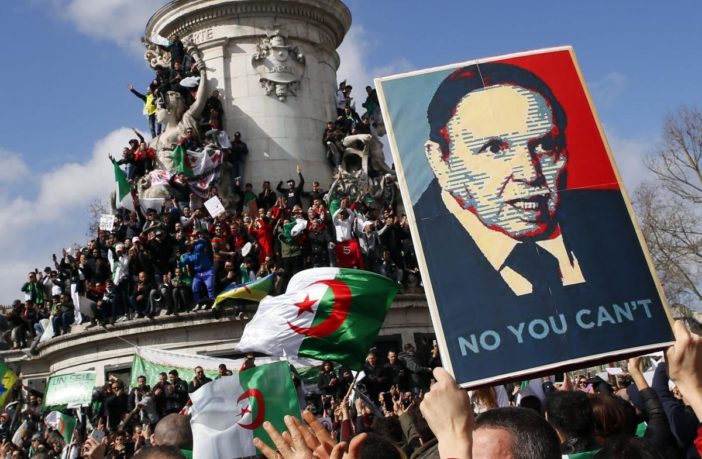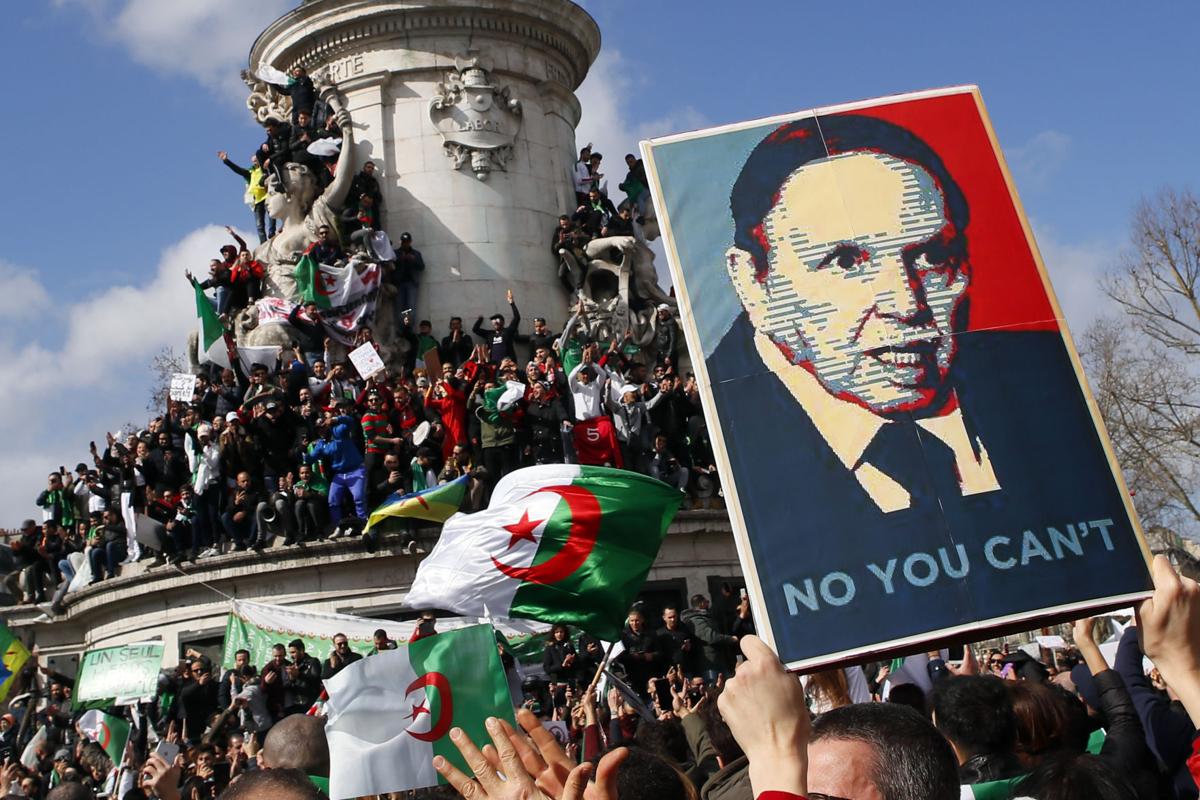NPR
The president’s decision that he wouldn’t seek a fifth term brought joy to the streets. But students resumed protests after the ailing leader delayed elections, meaning he stays in power indefinitely.
DAVID GREENE, HOST:
Massive protests are taking place right now in Algeria, the largest since that country won its independence from France in 1962. The longtime regime ruling the North African nation is still in power, but, as NPR’s Eleanor Beardsley reports, it may not be for much longer.
ELEANOR BEARDSLEY, BYLINE: The Algerian capital exploded with joy Monday night, after 82-year-old President Abdelaziz Bouteflika renounced plans to run for a fifth term. But the jubilation quickly turned to skepticism after Bouteflika also canceled the April 18 presidential election. Meriem Amellal covers Algeria for news channel France 24.
MERIEM AMELLAL: (Through interpreter) The people asked for an election without Bouteflika, and they got Bouteflika without an election. It’s kind of like prolonging a soccer game, but the people say game over.
BEARDSLEY: Bouteflika has been in power since 1999, but the wheelchair-bound head of state has rarely appeared in public since suffering a stroke six years ago. His decision not to run again was read out by an announcer on state TV. Bouteflika is supported by a group of military generals and top businessmen referred to as The Clan, who are accused of enriching themselves on Algeria’s large oil and gas reserves. The country has been run by this opaque cabal for decades, says Algerian writer Slimane Zeghidour.
SLIMANE ZEGHIDOUR: (Through interpreter) You have to understand that everything is subsidized by the state in Algeria – gas, electricity, water, bread, lentils. There’s an expression – the Algerian citizen is like a digestive tube; keep it fed and happy, and it’ll stay quiet. But this is no longer the case. Algerian society is discovering its power, and the regime is discovering its weakness.
BEARDSLEY: Algerians say they were bypassed by the Arab Spring revolutions because people had no stomach for violence after their own civil war in the 1990s. During that decade, an estimated 200,000 people were killed as the government battled an Islamist insurgency. But there’s a new generation now, says France 24’s Amellal.
AMELLAL: (Through interpreter) Forty percent of the population’s under the age of 25, and this generation only knows Bouteflika. They did not live the Black Decade of the ’90s or the War of Independence, and they are not scared to move forward.
(SOUNDBITE OF PROTEST)
UNIDENTIFIED PROTESTERS: (Chanting in foreign language).
BEARDSLEY: Algeria’s young people say they will continue to protest until the whole regime falls. Eleanor Beardsley, NPR News, Paris.
(SOUNDBITE OF THE GOTHENBURG ADDRESS’ “A LESSER COMING HOME”)
Copyright © 2019 NPR. All rights reserved. Visit our website terms of use and permissions pages at www.npr.org for further information.
NPR transcripts are created on a rush deadline by Verb8tm, Inc., an NPR contractor, and produced using a proprietary transcription process developed with NPR. This text may not be in its final form and may be updated or revised in the future. Accuracy and availability may vary. The authoritative record of NPR’s programming is the audio record.








